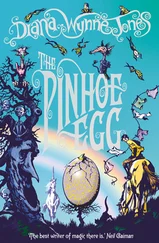‘That’s now,’ Brunetti said. ‘Her son was born about forty years ago. Things were different then. Think about when we were kids, what our parents said about unmarried women who had children.’
Vianello thought for a moment, then said, ‘But the fact that we heard them talk about it means that women were doing it, and enough of them for there to be talk. In front of children, that is.’
Casting his memory back, Brunetti was forced to agree that Vianello was right. He remembered hearing his parents – really, his mother with her friends – talk about other women in the neighbourhood who lived with men without benefit of clergy, had children with them. As far as he could recall , all that seemed to matter to his mother was whether they treated the children well, which meant keeping them clean, raising them to be polite and respectful of their elders, feeding them abundantly, and seeing that they went to school and did well. But that was his mother; he had doubts as to whether her friends shared this elasticity of moral vision.
His speculations were interrupted by the entrance of Pucetti, who had seen them from the street. He approached their table, saying, “I hope you don’t mind if I have a drink while I’m in uniform.”
‘Only if you let me pay for it,’ Brunetti said and went over to the bar to get him a glass of white wine. When he came back with it, Pucetti was sitting opposite Vianello and busy telling him about his encounter.
‘I’m to go and pick her up at ten tomorrow morning and take her to the hospital,’ he said, accepting the glass Brunetti offered him. He took an eager swallow and set it down. Turning to Brunetti, he said, ‘I hope you understand I didn’t mean any disrespect, sir.’
Brunetti laughed, followed by Vianello, and then by Pucetti himself. Looking at Vianello, Brunetti said, ‘You should have heard him: “I think the Signora should be asked to give this information only once,” and then just the least little bit of a hesitation before he added, “sir”.’ He turned to the young officer, whose face had turned red with embarrassment, and said, ‘Well done, Pucetti.’ Then he gave in to his curiosity and asked, ‘How did you know about the soccer?’
Pucetti picked up his glass and swirled his wine around; to give him something to look at while he spoke, Brunetti thought. ‘The guys in the squad room were talking about Cavanella, and one of them – Corolla – said he used to play soccer over here, and they would let him – Cavanella, that is – play goalie because they felt sorry for him. He fell down a lot, but he played well enough: besides, no one ever does want to be goalie.’
‘He said they all tried to make him feel good,’ Pucetti went on. ‘Smacking him on the shoulder when he caught the ball or blocked a goal.’
That explained, Brunetti called them back to business by looking at Pucetti and asking, ‘What did you make of her story?’ Then, to aid him, he added, ‘Two possibilities we’ve come up with, which are that she stole the baby’ – he smiled to suggest that this was not to be taken seriously – ‘or that she raised the child for a relative. Or it could even have been a friend, I suppose.’ Then, in fairness before Pucetti committed himself to either proposition, Brunetti added, ‘I don’t think either one has any merit.’ He had seen, or thought he had seen, the resemblance between their faces and did not doubt for an instant that Signora Cavanella was the mother of the dead man.
‘Neither do I,’ added Vianello. ‘I think the obvious reason is that she wasn’t married to the father.’
‘What difference does that make?’ Pucetti asked. The question, but even more the clear perplexity on his face, showed his age and the generation from which he came.
‘It was like that, Roberto,’ Vianello assured him. ‘Believe me. And when your grandparents were your age, women with illegitimate children were shunned by all decent people; sometimes their children were taken from them and put into orphanages.’
The older men watched Pucetti process this tale, his incomprehension as evident as if he had been told that children in former times went to work at the age of eight. Perhaps because Brunetti’s grandparents had lived with the family for the first ten years of his life, he was aware in a visceral, real sense of the way things used to be. Pucetti had grown up in a world of computers and an elastic ethical system, so the thought that a woman would be shunned for being unmarried at the time of the birth of her child would be as bizarre to him as the idea that people would be willing to die in defence of an idea rather than the possession of an object.
The older men seemed to decide at the same moment that persisting in a history lesson was futile. Brunetti asked, ‘Did she say anything else?’
Pucetti, also glad to return to the present, said, ‘She elaborated a bit on her story about France. It turns out that her husband was French and left her soon after he brought them back to Italy.’
‘Where she said his parents were living?’ asked a sceptical Brunetti.
Pucetti smiled. ‘She told me she felt so threatened by you that she got things all mixed up. It seems they went to his parents in France , and then they came back to Italy, though she didn’t say where.’ His voice was neutral, leaving the other men to believe what they would of the story. ‘He stayed with them for only a short time, and then he went back to France and she never heard from him again.’
‘She called him her husband?’ Vianello asked.
Pucetti shrugged. ‘I had the feeling it might have been a courtesy title. And she seemed uncertain about where they were living in France.’
‘She mentioned Poitiers,’ Brunetti reminded him.
‘I know,’ Pucetti said with a very sly smile.
Vianello reached across the table and poked Pucetti in the arm. ‘Come on, Roberto, what else have you done that makes you look so proud of yourself?’
‘I told her I’d been there once, with my parents, when I was a kid, and I loved playing on the beach.’
Vianello propped his elbows on the table and hid his face in his hands. He shook his head, and from behind his hands came his muffled voice, ‘Oh, you sly bastard.’ Then he asked, looking at him directly, ‘What did she say?’
‘That with the baby she never had time to go to the beach. But that her husband told her it was very beautiful.’ After a brief hesitation, Pucetti said, his regret audible, ‘It was too easy, really. I almost felt sorry for her.’
His use of that ‘almost’ did not go unheard by Brunetti, but he said only, ‘So she’s never been to Poitiers, but if we ask her about that, she’ll just say she had it mixed up with some city that was on the beach. Even if her story’s true, there’s no way we can check it. The French won’t cooperate. I don’t believe her story, but if it were true, the baby would be registered under the father’s name, and we don’t know what that is.’
Pucetti made a small gesture that reminded Brunetti of a student’s raising his hand in class. ‘If I might ask, Commmissario, why is this so important to you?’
‘Because she’s telling too many lies,’ Brunetti answered without hesitation. ‘I want to know what she’s lying about.’
He decided to tell them something he had realized after his conversation with Rizzardi. ‘He can’t be buried
until he’s identified.’
‘Isn’t that why I’m going to the hospital with his mother tomorrow morning?’ Pucetti asked. ‘She’ll identify him, surely.’
‘That’s not enough,’ Brunetti said, aware of how cold the statement was.
‘Why?’ Pucetti asked. Brunetti knew that Vianello understood the reason and wanted Pucetti to learn it in a way that would make him never forget it.
Читать дальше












